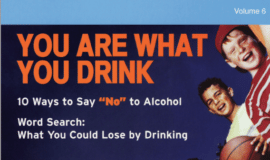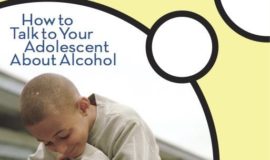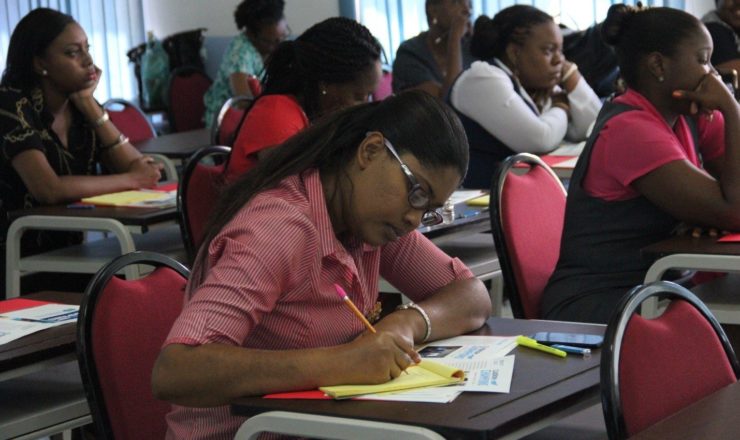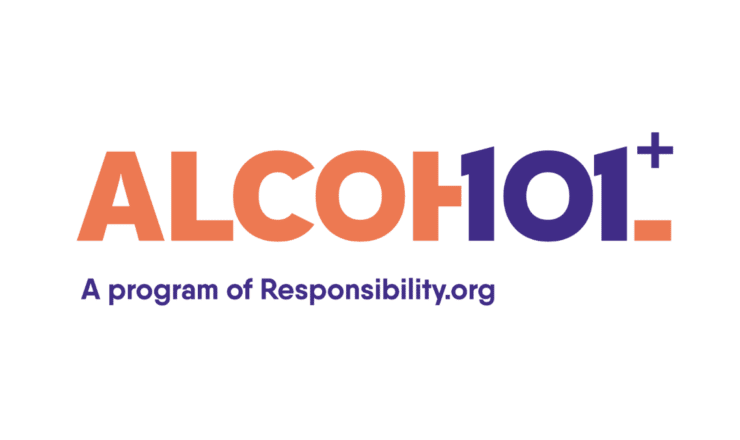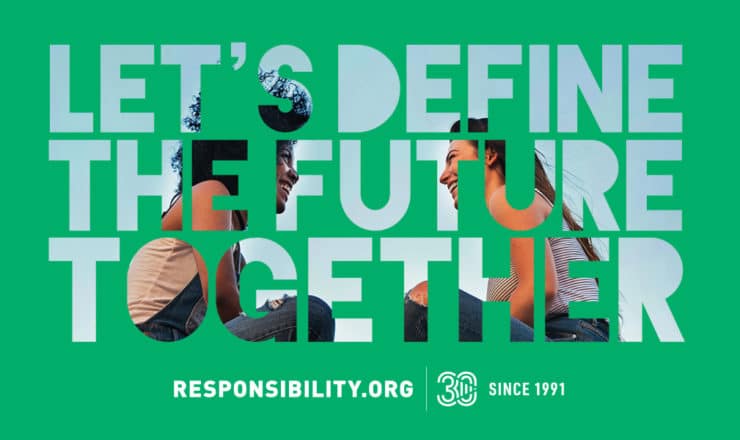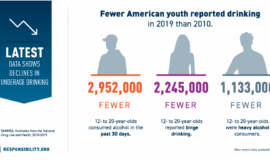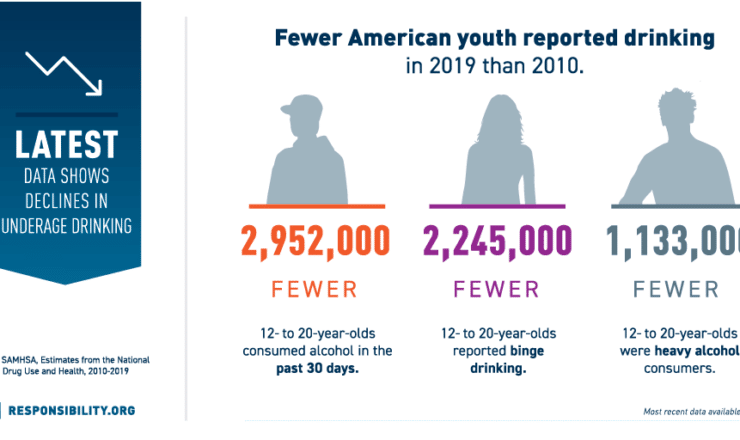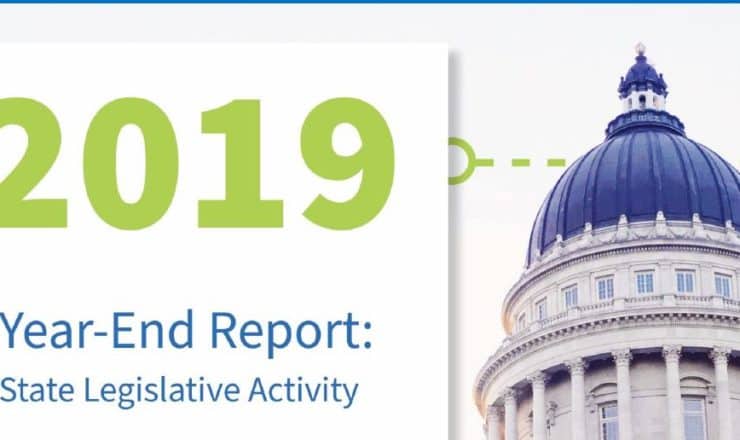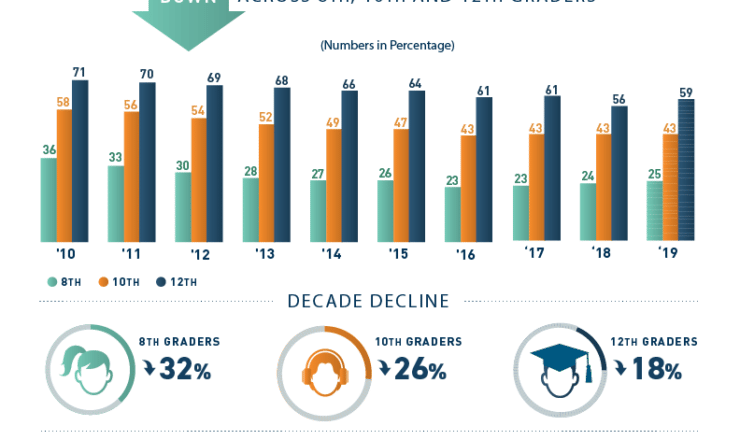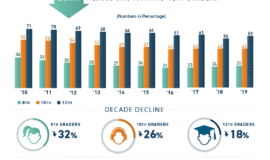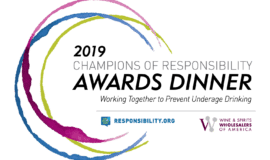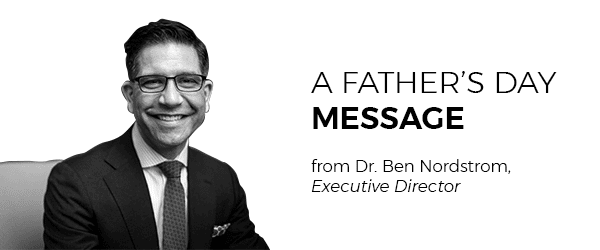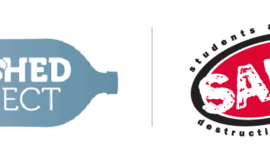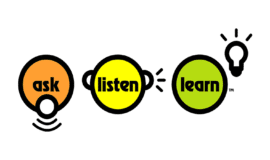
Over the last 20 years, conversations about underage drinking between parents and their kids increased 31%, while current rates of underage drinking have decreased 53%.
Talking to Tweens About Alcohol
In 2003, Responsibility.org, alongside a team of educators and organizations specializing in elementary- and middle schoolers, developed Ask, Listen, Learn: Kids and Alcohol Don’t Mix. Ask, Listen, Learn is a completely FREE digital underage drinking prevention program for kids ages 9-13 (grades 4-7) and their parents and educators with the goal to reduce underage drinking. In 2023, we are celebrating 20 years of conversations and the progress that has been made to empower kids to say “YES” to a healthy lifestyle and “NO” to underage drinking.
The information provided throughout the program guides adults with ways to start communicating with kids about alcohol and the developing brain– and how to continue talking to them as part of a lifetime of conversations. Both science and evidence-based, Ask, Listen, Learn is the most widely distributed underage drinking program of its kind.
FOR EDUCATORS
In 2016, Ask, Listen, Learn launched a series of seven videos and lesson plans for educators teaching grades 4-7. These lessons are proven to increase kids’ knowledge of the developing brain and to empower them to make good decisions about alcohol in the future. In keeping with the increasing trend towards digital education, the Ask, Listen, Learn curriculum consists of animated videos and corresponding downloadable lesson plans that teach kids what the brain does, what alcohol does to it, and what that does to them. The program is easily implemented into any classroom—and the activities, games and lessons keep kids engaged as they learn. The program helps teachers, school counselors and school nurses teach kids the value in saying “YES” to a healthy lifestyle and “NO” to underage drinking through basic neuroscience and skills-based learning.
Recognizing that prevention education is also dependent on the social and emotional development of students, Responsibility.org joined Discovery Education’s Social Emotional Learning Coalition as a founding partner in 2021. This partnership focuses on the skills and foundations that kids need in order to find balance and to support their mental health including: healthy decision making, self-advocacy, refusal strategies, and goal setting. Learn more about the Discovery Education SEL coalition here, and access the lesson plans created in partnership with Discovery Education that highlight the importance of the connection between prevention education and the wellness of youths’ brains, bodies, and behaviors here.
FOR PARENTS & CAREGIVERS
Ask, Listen, Learn has resources to support communication between kids and their parents about saying “NO” to underage drinking as well. Through online resources like vibrant infographics, conversation starters, blog posts, an active email community of educators and parents, and active social media channels, Ask, Listen, Learn helps to guide adults on ways to start conversations about alcohol and the developing brain now, and continue them as their kids grow and change.
Marking the 20th anniversary of the Ask, Listen, Learn program, we conducted a study among parents and their kids. The survey is part of Responsibility.org's ongoing efforts to empower parents and kids with the resources they need to have meaningful and effective conversations around underage drinking, substance use, and mental health issues so that they make healthy and responsible choices. The results are encouraging, and they indicate that prevention and wellness conversations have increased over the last two decades and continue to be critical in keeping kids substance-free. Some of the findings include:
- Kids report their parents as the number one (33%) influence on their decision to drink or not drink alcohol, followed by best friends (25%), and social media (17%).
- 93% of parents have talked to their kids at least once in the past year about alcohol consumption.
- 91% of kids have talked with their parents or another caregiver about the dangers of drinking alcohol.
- One in 3 youth say they are worried about illegal drugs and overdoses (38%), underage drinking (38%), and underage cannabis use (34%), with 55% of kids reporting that they think they will be faced with the decision to drink alcohol underage within the next year.
This survey is part of the ongoing efforts of Responsibility.org to empower parents and kids to make informed lifestyle decisions by supplying them with the resources they need to have meaningful and effective conversations regarding underage drinking, substance use, and mental health issues.
RESPONDING TO OUR COMMUNITY
As a leader in prevention education, Responsibility.org has always worked closely with educators and parents to learn more about the resources they need to help kids make healthy decisions. In a survey of nearly 500 teachers and parents, 92% of respondents asked for resources focused on cannabis. Therefore, in 2020, Ask, Listen, Learn launched a new unit to its underage drinking prevention curriculum, focused on the effects of cannabis on the developing brain.
The module—similar to the seven existing lesson plans about alcohol and the developing brain—includes a brief, two-minute video with information on the endocannabinoid system, how the brain and body process and breakdown cannabis, and how the developing brains and bodies of underage users react and are affected by it. This new module includes information for educators and parents to educate themselves about the effects of cannabis on the developing brain so that conversations with their students and kids can be fact-based and effective in helping kids refuse underage cannabis use.
Kids don’t learn in a vacuum – they’re faced with decisions about more than one challenge at a time, and they need to have resources to make the best choices they can. From discussions about drinking alcohol, to the impacts of cannabis on a developing brain, to getting enough sleep, adults must help guide their kids and students by having conversations and providing factual information. Ask, Listen, Learn provides tools and resources for parents and educators to do just that.
Our research indicates that when conversations about alcohol take place, families also discuss the following:
What else are parents talking about?
Cannabis (55%)
Tobacco (54%)
Healthy friendships/Relationships (53%)
Sex (52%)
Mental Health and Well-being (52%)
What else are kids talking about?
Cannabis (59%)
Peer pressure (56%)
Tobacco (51%)
Sex (50%)
Mental Health and Well-being (49%)
From discussions about underage drinking, to the impacts of cannabis on a developing brain, to instilling mental and well-being values and foundations, adults must help guide their kids and students by having conversations and providing factual information. Ask, Listen, Learn provides tools and resources for parents and educators to do just that.
This cannabis module’s content is based on scientific information and resources from the National Institute on Drug Abuse (NIDA). For more information on NIDA and the science of cannabis, please visit www.drugabuse.gov.
Program content regarding the effects of alcohol on the developing brain has been reviewed by the National Institute on Alcohol Abuse and Alcoholism (NIAAA) and is consistent with currently available science.


